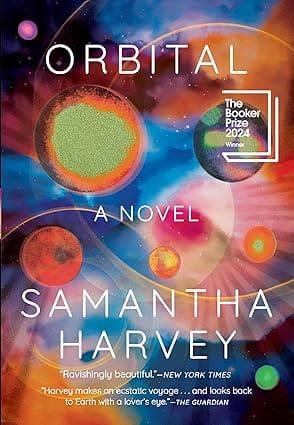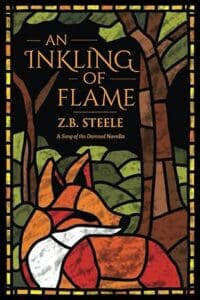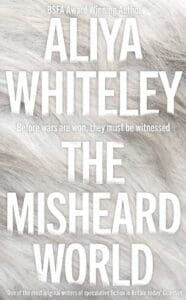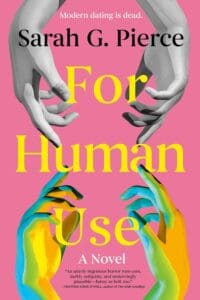
Synopsis
A slender novel of epic power and the winner of the Booker Prize 2024, Orbital deftly snapshots one day in the lives of six women and men traveling through space. Selected for one of the last space station missions of its kind before the program is dismantled, these astronauts and cosmonauts—from America, Russia, Italy, Britain, and Japan—have left their lives behind to travel at a speed of over seventeen thousand miles an hour as the earth reels below. We glimpse moments of their earthly lives through brief communications with family, their photos and talismans; we watch them whip up dehydrated meals, float in gravity-free sleep, and exercise in regimented routines to prevent atrophying muscles; we witness them form bonds that will stand between them and utter solitude. Most of all, we are with them as they behold and record their silent blue planet. Their experiences of sixteen sunrises and sunsets and the bright, blinking constellations of the galaxy are at once breathtakingly awesome and surprisingly intimate.
Profound and contemplative, Orbital is a moving elegy to our environment and planet.
Review
I can’t say I know much about literary fiction. But that’s what led me to read Orbital by Samantha Harvey. Let me back up a bit — I read James by Percival Everett (a retelling of Huckleberry Finn from the perspective of the slave Jim) last summer. As soon as I read it, I suspected it would be the best book I would read throughout the entire year and I was proven correct. Now, when you’ve read an amazing book, it’s logical to start looking for like-minded people as yourself and I soon fell down the literary fiction rabbit-hole. I don’t think I’ve ever willingly read a book that is short-listed for the Pulitzer or the Booker Prize, but I found myself rooting for James during literary awards season.
But then James didn’t win the Booker Prize (the top award for an English-language novel), and Orbital did. I was intrigued because on its surface Orbital is a science fiction book and just like in TV and movies, science fiction doesn’t win serious awards for books. So if James wasn’t better than a sci-fi novel, I should read this book, right?
So…
Is Orbital a well-written book? Yes.
Is Orbital a good science fiction book? No.
I don’t know. Maybe I’m being harsh, but Orbital is probably not a book that most fantasy and sci-fi readers would readily enjoy. In fact, I believe Harvey doesn’t even want to classify the book as science fiction. I can see why the book won awards, but it feels like the bizarre ramblings of someone who sat outside one night looking at the moon and stars and just thought, “What’s the point of it all?”
There are some interesting existential musings about life, the planet, religion, culture, and the significance of it all. It’s a short book, but between all of it, there is barely a plot. The characters all seem British, even though they are all supposedly from different countries. In some ways, it feels like the internal monologue of each character is of a 45-year-old man going through a crisis, wondering about what life even means.
I didn’t hate it — but definitely left the book feeling unsatisfied at the end. If you enjoy meandering prose about the frailty of humanity and the unrelenting tide of nature and the universe, check it out — maybe this book is for you.











Leave a Reply